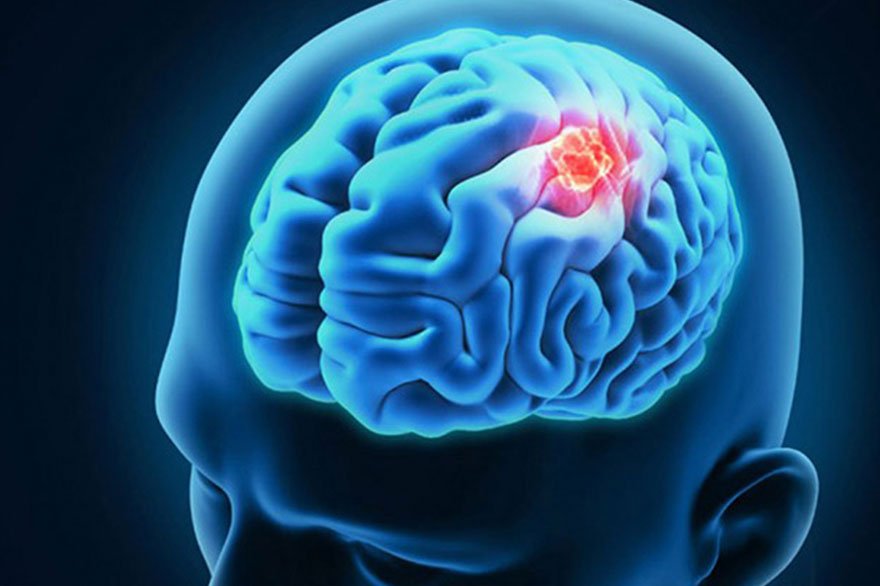What Is a Brain Tumor?
A brain tumor is an abnormal growth of cells within the brain or surrounding tissues. Tumors can be benign (non-cancerous) or malignant (cancerous). While benign tumors typically grow slowly and don’t spread to other parts of the body, they can still be dangerous if they press on vital areas of the brain. Malignant tumors, on the other hand, are aggressive and can invade nearby brain structures.
Brain tumors are also classified as:
• Primary: originating in the brain
• Metastatic (secondary): spreading to the brain from cancers elsewhere in the body, such as the lungs or breast
The severity of a brain tumor depends on its size, location, and growth rate. A small tumor in a critical area (like the brainstem) can cause more harm than a larger tumor in a less sensitive region. Early diagnosis and expert evaluation are essential to determine the right treatment approach
Why Symptoms May Worsen
Brain tumor symptoms can worsen over time due to the growing pressure inside the skull. As a tumor enlarges, it can compress surrounding brain tissues, nerves, and blood vessels. In many cases, the tumor also triggers swelling around the brain — a condition known as cerebral edema — which further increases intracranial pressure and intensifies symptoms like headaches, nausea, and confusion.
The location of the tumor plays a crucial role in how symptoms evolve. For example, a tumor in the frontal lobe may affect behavior and personality, while one near the cerebellum may impact balance and coordination.
In general, malignant tumors tend to grow and spread faster than benign ones, leading to more rapid symptom progression. However, even slow-growing tumors can cause significant issues if they press on sensitive or critical areas of the brain. Monitoring changes and seeking early evaluation is vital.
Detailed Warning Signs of a Brain Tumor
Brain tumor symptoms depend on the tumor’s size, location, and rate of growth. Here are the major warning signs to watch for:
1. Persistent or Severe Headaches
Brain tumor symptoms depend on the tumor’s size, location, and rate of growth. Here are the major warning signs to watch for:
2. Persistent or Severe Headaches
• Headaches that worsen over time
• More intense in the morning or after waking up
• Triggered or intensified by coughing, sneezing, or bending forward
2. Vision or Hearing Changes
• Blurred or double vision
• Loss of peripheral vision or blind spots
• Ringing in the ears or hearing loss
3. Balance, Coordination & Dizziness
• Difficulty maintaining balance
• Impaired coordination or fine motor skills
• Frequent dizziness or lightheadedness
4. Speech, Memory & Cognitive Difficulties
• Slurred or slowed speech
• Difficulty recalling words or forming sentences
• Poor concentration or memory lapses
5. Behavioral or Personality Changes
• Sudden mood swings or irritability
• Apathy or loss of interest in usual activities
• Inappropriate social behavior or confusion
6. Nausea, Vomiting & Seizures
• Unexplained nausea or vomiting
• New-onset seizures
• Muscle twitching, convulsions, or temporary unconsciousness
Headaches that worsen over time
• More intense in the morning or after waking up
• Triggered or intensified by coughing, sneezing, or bending forward
2. Vision or Hearing Changes
• Blurred or double vision
• Loss of peripheral vision or blind spots
• Ringing in the ears or hearing loss
3. Balance, Coordination & Dizziness
• Difficulty maintaining balance
• Impaired coordination or fine motor skills
• Frequent dizziness or lightheadedness
4. Speech, Memory & Cognitive Difficulties
• Slurred or slowed speech
• Difficulty recalling words or forming sentences
• Poor concentration or memory lapses
5. Behavioral or Personality Changes
• Sudden mood swings or irritability
• Apathy or loss of interest in usual activities
• Inappropriate social behavior or confusion
6. Nausea, Vomiting & Seizures
• Unexplained nausea or vomiting
• New-onset seizures
• Muscle twitching, convulsions, or temporary unconsciousness
Red-Flag Signs That Require Immediate Medical Attention
Some symptoms of a brain tumor indicate a possible emergency and must never be ignored. Seek urgent medical evaluation if any of the following occur:
• Sudden and severe headaches, especially those that feel different from usual patterns
• First-time or unexplained seizures in adults
• Progressive weakness or numbness in one part of the body
• Sudden loss of vision, hearing, or speech
• Persistent vomiting not linked to illness or food
• Difficulty walking, standing, or maintaining balance
• Rapid changes in personality, confusion, or disorientation
These symptoms may also resemble other serious conditions like stroke or infection. Timely diagnosis and neuroimaging (like an MRI or CT scan) can help determine the cause and guide appropriate treatment.
Conclusion
Brain tumor symptoms can often be subtle at first — but when they worsen, the consequences can be life-altering. Timely recognition and diagnosis are critical, as early intervention can significantly improve outcomes. If you or someone you know is experiencing any of the warning signs mentioned above, don’t wait.
Get an expert evaluation today.
Book an appointment with our neurosurgeons at Neurowellness Brain & Spine Clinic, Bangalore for prompt scans, accurate diagnosis, and compassionate care.
FAQs
1) What are the most common worsening signs of brain tumors?
Persistent headaches, seizures, vision or speech problems, and weakness are key worsening symptoms.
2) When should I see a doctor for possible brain tumor symptoms?
If headaches worsen, seizures occur, or neurological changes appear, consult a neurosurgeon immediately.
3) Can brain tumors be treated if diagnosed early?
Yes. Early detection allows for surgery or treatment that can control tumor growth and improve outcomes.
4) Are all worsening brain tumor symptoms permanent?
Not always. With timely treatment, some symptoms improve, while untreated cases may cause lasting damage.




